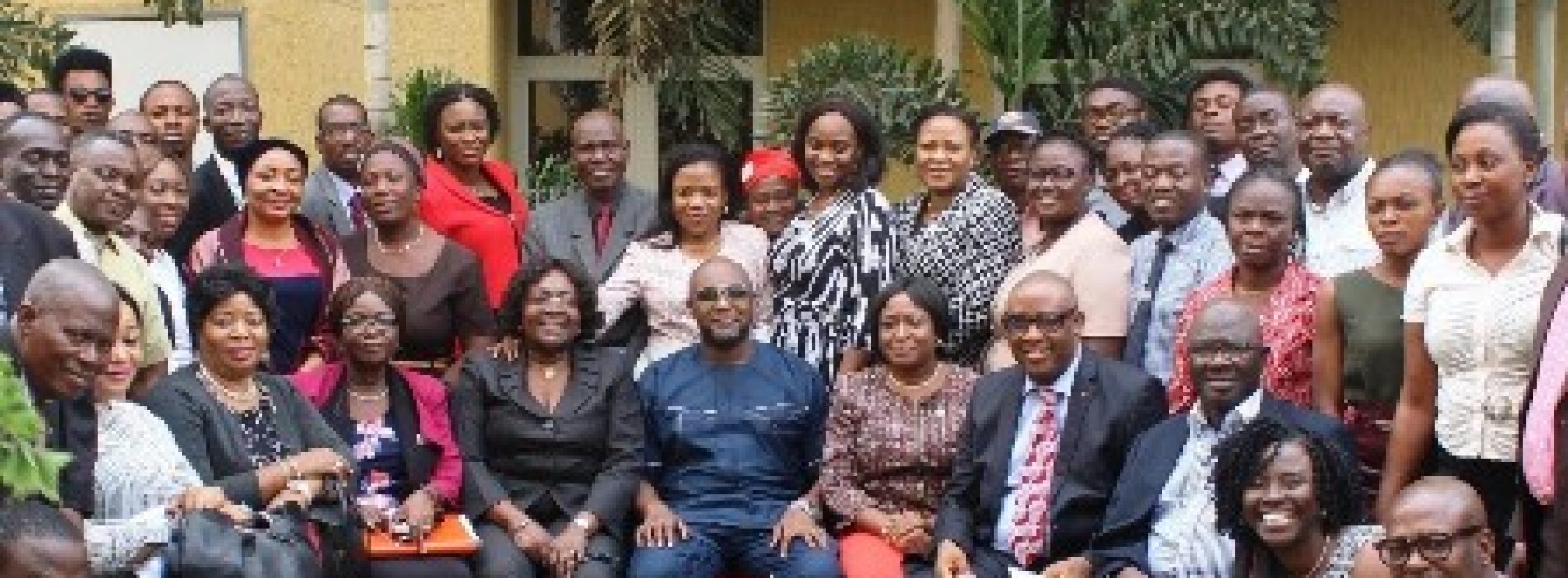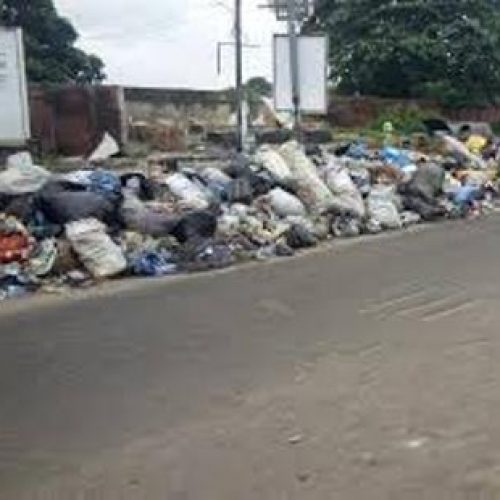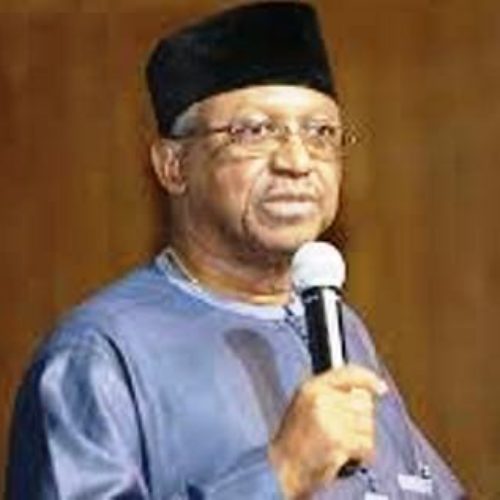Lagos moves to strengthen health workforce

Stakeholders at the Final Pre-validation meeting. Front Row L-R (Dr. A. Oluwo- Director Medical Services Primary Health Care Board (PHCB); Mrs. Odukoya- Head of Nursing Services, PHCB, Dr. M. Olaiya- Executive Secretary, Lagos State Blood Transfusion Service; Dr. O. Taiwo- Director, Healthcare Planning Research and Statistics (LSMOH); Roy Chikwem- Area Operations Manager, Lagos & Cross River, Save the Children; Akaoma Onyemelukwe- HRH Consultant, Dr. E. Zamba- State HRH Focal Person, Dr. A. Shokunbi, Director- Medical Administration, Training and Special Programmes; Dr. O. Imosemi- Medical Director, Lagos Island Maternity Hospital, and Dr. LTA-Lawal, Medical Director, Gbagada General Hospital).
Amidst statistics showing a slight decrease in the number of workers in its heath workforce, the Lagos State government has concluded plans towards the adoption of its Human Resources for Health (HRH) policy to strengthen its workforce.
The follows the final pre-validation of a Situation Analysis Report and the draft HRH policy, two vital documents aimed at providing the framework for building a strong workforce that will enable the state to attain, sustain and accelerate progress on universal health coverage.
The two documents, coordinated by the Lagos State HRH Technical Working Group (TWG), with guidance from the Directorate of Planning, Research and Statistics (DPRS), Lagos State Ministry of Health (LSMOH), the Health Professionals Integration Unit (HPIU), with support from Save the Children International (SCI) which, according to reports have been subjected to a series of intensive technical reviews since June, 2016, were pre-validated recently at the Genesis Hotel, GRA, Ikeja.
Presenting the HRH Situational Assessment report, the Chief Executive Officer/Principal Consultant, Affinity Consulting, Akaoma Onyemelukwe, described the assessment as the second in the history of strengthening HRH in Lagos State.
According to her, the assessment was carried out to determine the current health workforce information, the availability and distribution of human resource for Health in the state and also to establish the trend and progress made by the health sector in the relevant HRH indicators.
The consultant also stated that the assessment was meant to identify, highlight and describe HRH situations that would inform policy priorities for health sector investment and also to provide recommendations that would chart the way forward for addressing the identified HRH gaps, needs and challenges in Lagos State.
Findings of the assessment, according to the consultant, revealed that the current number of health workers in the state had declined from 14,984 workers in 2010 to a total of 13,724 in 2016. The private sector was reported to have a higher number of workers estimated at 23,001.
Onyemelukwe attributed the decline in the number of health workers to reasons such as inaccuracy in documentation, brain drain and retirements.
The report also revealed that the state has an estimated 17.30 doctors and nurses per 10,000 population to deliver essential maternal and child health services as against 23 per 10 000 population recommended by the World Health Organisation (WHO).
“Urgency is required to raise these numbers for the state to achieve SDGs & UHC,” she told stakeholders at the pre-validation meeting.
Some highlights of the findings also include the following:
- The health sector/function budget allocation between 2010- 2015 range within 7% to 9.76% of the Lagos State budget with a public expenditure average of 8.1%.
- About 40% of the recurrent expenditure in the budget is expended on the payment of salaries for HRH .
- Lagos health sector remuneration is better than other sectors but not competitive with private sector jobs
- Lagos HRH institutions within the public sector have 66.21% of females working across the health sector with 33.78 % males.
- Females make up the highest numbers and are found mostly at the middle level with a few at management level.
- More males are found within the top management especially in the leadership positions.
- The HRH distribution is skewed towards the secondary level of care, with 58.8% of the health workers in the public sector as against 48.5% in 2010.
- Primary level of care is the entry level into the formal health care system and the closest to the communities. It accounts for only 16.7% compared to 8.7% in 2010.
- Tertiary level of care accounts for 14.9% of the workforce in the public sector.
- The Health Service Commission has well-developed and robust HRHIS system (HR Manager 2) although this requires upgrade for an optimal use.
- Lagos State Government has been investing in strengthening the capacity to use information technology equipment in the state including health sector. ICT equipment such as computers (laptops, desktops and its accessories) exists within the ministries, departments and agencies.
- Lagos State is one of states in the forefront of improving quality of care.
- The state has invested in the improvement of infrastructural level within the health sector through the equipment, and upgrades of various health care centres and facilities.
Speaking at the final Pre-Validation Meeting, the state Commissioner for Health, Dr. Jide Idris who was represented by the ministry’s Director, Planning, Research and Statistics Dr. Olufemi Taiwo described the pre-validation of the two documents as an indication of the State’s commitment toward Improving human planning, development and management which is instrumental in the overhaul of the health system.
“The implementation of these strategic interventions would effectively address human resource challenges with a coherent approach that provides solutions at individual, organisational and health system level and contribute significantly to improved health outcomes in the State and Nigeria at large.
“We all as stakeholders and partakers of this initiatives are saddled with the responsibility of ensuring the successful implementation of these strategies and provide for Lagosians a highly competent, motivated, productive and resourceful Human Resources for Health who would utilize appropriate technology to apply best practices and provide requisite and quality healthcare service to Lagosians,” he said.
In his goodwill message at the occasion, the Area Operations Manager, Roy Chikwem, Lagos and Cross River, Save the Children International, thanked all stakeholders present and appreciated the Government for taking on the task of creating an enabling policy environment for health workers to deliver quality health services to women and children.
He informed stakeholders that SCI’s intervention in Lagos state, apart from the Health Workers Capacity Building (HCB) project- under which the HRH activities are being run, includes the Stop Diarrhoea Initiative (SDI), and STEER (a project on HIV AIDS prevention and care of Orphans and Vulnerable Children). He also disclosed that other projects are in the pipeline which will be communicated with Stakeholders as they unfold.
About author
You might also like
Refuse dumps take over Lagos
Some residents of Lawanson and Mushin area of Lagos State are groaning over the continued accumulation of refuse heaps in the areas. The residents, who spoke to the News Agency
10,697 medical laboratory scientists left Nigeria – Registrar
Dr Tosan Erhabor, Registrar, Medical Laboratory Science Council of Nigeria (MLSCN), said that so far a total of 10,697 medical laboratory scientists had left the country. Erhabor told the News
Breaking: Nigeria confirms second coronavirus case
The Nigerian government has confirmed the second case of coronavirus in the country. Minister of Health, Dr Osagie Ehanire, announced this on Monday at a press conference in Benin City,







0 Comments
No Comments Yet!
You can be first to comment this post!